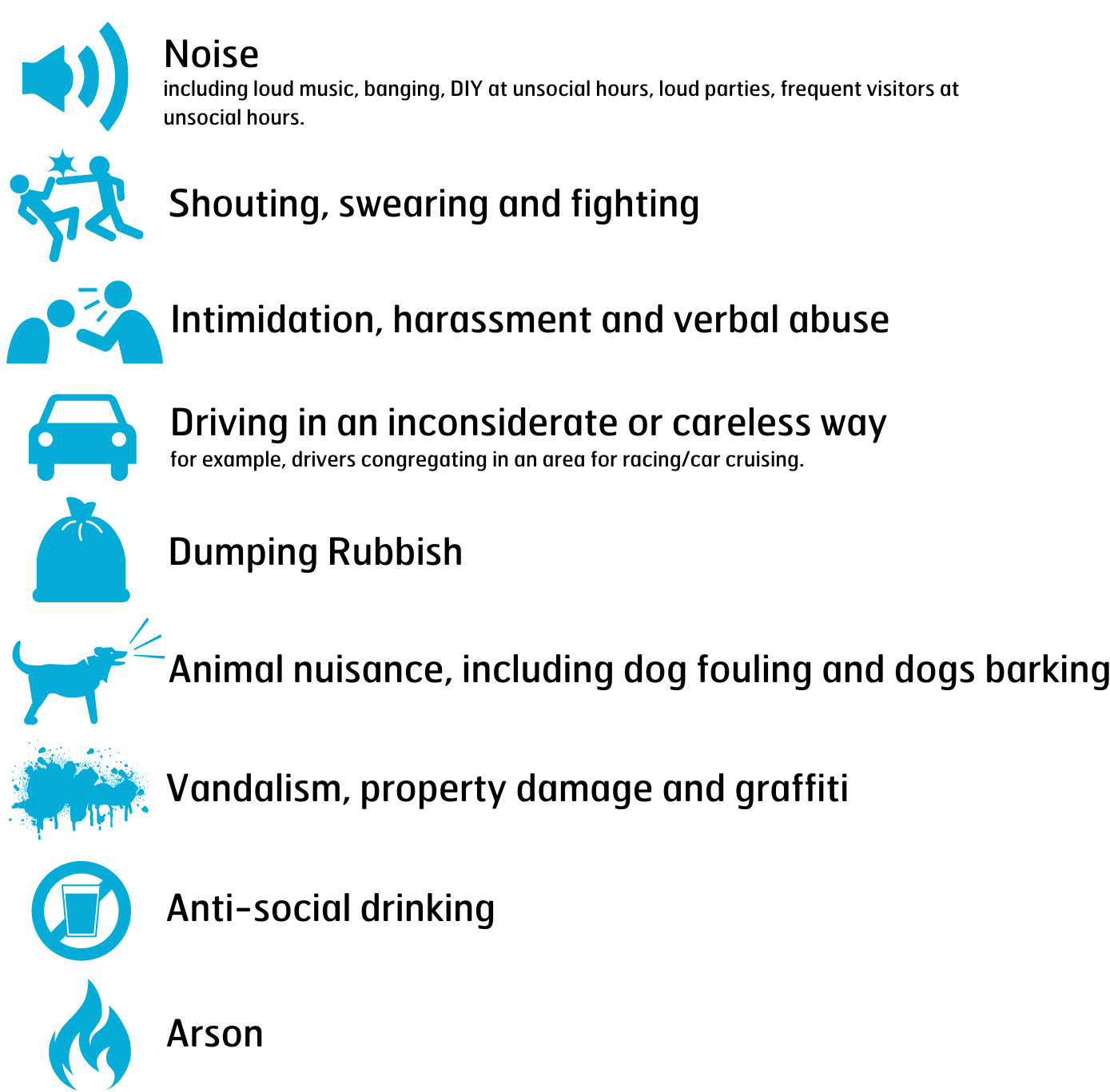Anti-social behaviour (ASB)
What is anti-social behaviour?
Acting in a manner that has “caused or was likely to cause harassment, alarm or distress to one or more persons not of the same household as the perpetrator."
The Crime and Disorder Act 1998
Anti-social behaviour is a wide range of unacceptable activity, and includes things like:-


How do you report ASB?
Not all anti-social behaviour is a crime and it can be confusing to know whether you should call the police or not.
If anyone is in danger, ALWAYS call the police on 999, but if you’re not sure whether the behaviour is a crime, try contacting your local authority first. Ask them if the behaviour is something they would normally deal with or if it would be classed as a criminal offence and needs to be reported to the police.
If the anti-social behaviour you know about it is a crime, you can give information to Fearless 100% anonymously.
Anti-Social Behaviour and the law
A person can receive up to 2, sometimes 3 warning letters. These letters will provide a description of the anti-social behaviour that has been committed. If this warning letter is breached and the anti-social behaviour continues, then this can become an Acceptable Behaviour Contract (ABC). In some cases, if the anti-social behaviour is severe, then the step of warning letters will be skipped entirely.
An Acceptable Behaviour Contract will be drawn up to address anti-social behaviours that are causing nuisance to others or within the community. This will have to be signed by the person displaying the anti-social behaviour and their trusted adult if it is a young person. An Acceptable Behaviour Contract stays with that person for 6 months, and if it is breached, that young person can then be referred to Youth Offending Services.
If a young person's anti-social behaviour continues, they may be referred to Youth Offending Services (YOS). YOS can offer a number of interventions, including:
- Creating an environment to enable the young person to apologise to those they have caused nuisance and distress.
- Restorative Justice.
- Undertake a victim course to help the young person recognise the impact of their anti-social behaviour.
If the person's anti-social behaviour continues at this stage, they may be summoned to court where they can received injunctions and curfews, preventing them from going to specific areas.
The next stage of law enforcement is a Community Protection Warning. This is a document that must be signed by the person committing the anti-social behaviour and their trusted adult if they are a young person. The document outlines particular behaviours which are against the law.
A Community Protection Notice (CPN) is a final warning before criminal charges are given. Similar to a CPW, it is a document that must be signed by the person committing the anti-social behaviour and their trusted adult if they are a young person. It outlines particular behaviours which are not acceptable and against the law.
Following all other stages, if the person's anti-social behaviour continues, they will face a Criminal Behaviour Order. This is presented to that person in court, and its aim is to tackle to most serious and persistent offenders of anti-social behaviour.

Anonymity
Fearless is a service that allows you to pass on information about crime 100% anonymously. Anonymous means your identity is completely unknown.

Give information anonymously
Report a crime 100% anonymously by completing our online form or calling 0800 555 111

Youth support services
Access a selection of youth organisations who can offer further information, advice and support for whatever you're dealing with.
